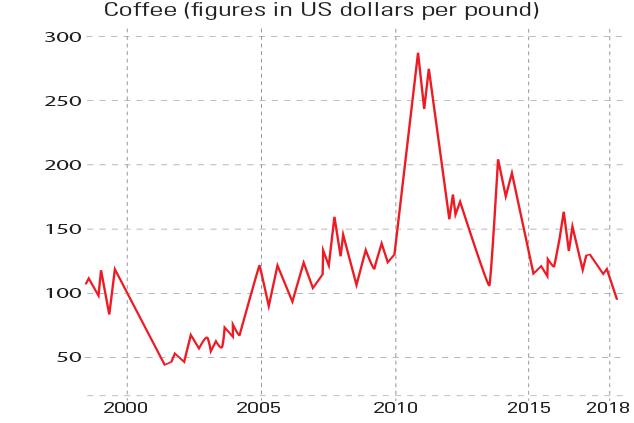
Coffee prices have tumbled to a 12-year low. Benchmark New York futures have now fallen below $1 a pound, thanks to a bumper crop in Brazil, the world’s largest producer, coupled with a stronger US dollar. Prices are below the cost of production in many of the main coffee-growing countries, says Emiko Terazono in the Financial Times. In Colombia and El Salvador it is $1.20 and $1.50 a pound respectively.
Producers are now calling on the big coffee companies to help “cover farmers’ costs as they struggle to make ends meet”. The world’s top ten coffee firms account for more than a third of bean consumption. Nestlé’s share is 9%, private equity group JAB Holdings takes 8%, and Starbucks consumes 3%.
Viewpoint
“Oil broke higher [this week], with the price of Brent decisively breaching US$80/bbl, a level it had repeatedly tested since early May, when the US administration announced it would reimpose sanctions on Iranian exports. The immediate trigger for the break-out was the decision at the weekend by the Opec cartel, plus Russia, not to increase their formal output target in the near term. With supply squeezes and bottlenecks elsewhere in the world, dealers fear a growing supply deficit in 2019. Their fears are justified… Even with US shale producers and the rest of Opec pumping at full stretch, vigorous enforcement of US secondary sanctions against buyers of Iranian oil could send oil prices spiralling higher. So could any new supply disruptions in the Middle East or Nigeria. As a result, the risks for the oil price will be skewed firmly to the upside over the next 12-15 months.”
Tom Holland, Gavekal Research